Recent Alumni Highlights
Florida State / Alumni / Recent Alumni Highlights
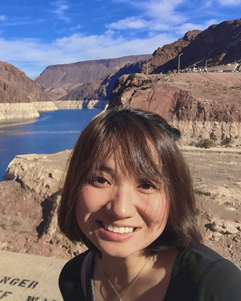
Yan Zhou (Ph.D. 2020, Industry)
Dr. Yan Zhou worked as graduate student at FSU from 2015 and 2020 under the supervision of Dr. Kenneth Hanson. Her research focused on the development of self-assembled multilayer light-harvesting structures for application in photovoltaics. She was able to increase broad-band absorption and understand the mechanism of photocurrent enhancement via a combination of spectroscopic techniques. Outside of the lab, Dr. Zhou was involved with FSU’s Graduate Women in Science—an organization that supported graduate women in pursuing careers in the sciences. During her time at FSU, Dr. Zhou was awarded the Graduate Student Research and Creativity Award by FSU’s Graduate School and the Philip Schlenoff Endowment for Excellence Graduate Student Travel Award. Post graduation, Dr. Zhou initially worked as a process engineer at Applied Materials, Inc. on plasma etching technology and more recently she took a position as a surface chemist at Thermo Fisher Scientific.
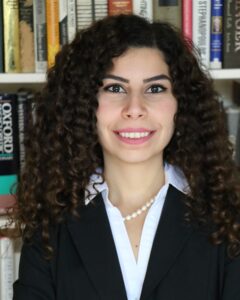
Mayassa J. Bou-Dargham (Ph.D. 2019, Postdoc Academia)
Dr. Mayassa Bou-Dargham was a graduate student at the Department of Chemistry & Biochemistry from 2014-2019. She as co-advised by Dr. Qing Xiang Amy Sang in Chemistry and Biochemistry and Dr. Jinfeng Zhang in the Department of Statistics. Her research focused on studying the different immune evasion mechanisms in human cancers including somatic mutations in medulloblastoma, and epithelial to mesenchymal transition in androgen-repressed prostate cancer. Dr. Bou-Dargham also collaborated with Prof. Yan Li at the Department of Chemical and Biomedical Engineering to study the effect of iron oxide nanoparticles on induced pluripotent stem cell-derived brain organoids. Her research resulted in a provisional patent application, and more than eight published research papers. She is currently a postdoctoral researcher at the Perelman School of Medicine at University of Pennsylvania with Prof. Warren Pear, where her research focuses on studying myeloid cell development and function under homeostatic and disease conditions.
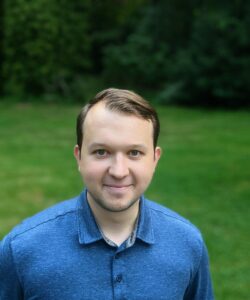
Nikita Mukhitov (Ph.D. 2017, Industry)
Nikita Mukhitov joined the Department of Chemistry & Biochemistry at FSU in the fall of 2013 after obtaining his BS Biochemistry at Trinity University in San Antonio. Nick joined the Roper laboratory in January 2014 and performed a number of different projects in his time at FSU, including working on microfluidic systems to facilitate automated electron microscopy sample preparation, and was instrumental in developing assays to measure insulin and glucagon levels from islets of Langerhans. He also investigated transcriptional profiles in groups of islets exposed to oscillatory glucose levels. During his time at FSU, he was awarded a Hoffman fellowship and a Predoctoral Fellowship from the American Heart Association. In the fall of 2017, he graduated with his PhD and went on to work in the Voigt Laboratory at MIT in the Synthetic Biology Center. His work there included genetically engineering probiotic bacteria to produce antimicrobial compounds. He is now a Senior Scientist at Merck in Discovery Biologics. He is developing high-throughput robotic platforms for producing therapeutic proteins, with work spanning protein engineering, molecular biology, expression and purification, and informatics work.
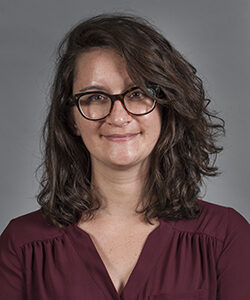
Ashley Longstreet (Ph.D. 2015, Academia)
Dr. Ashley Longstreet was a graduate student at FSU from 2010-2015 and worked under the supervision of Prof. D. Tyler McQuade. Her research focused on developing a streamlined synthesis for nevirapine, an antiviral for HIV, and ylidenemalononitrile enamine fluorescent sensors. After being a NIH Ruth L. Kirschstein Postdoctoral Fellow at MIT with Prof. Timothy F. Jamison, she began her independent career in 2017 in the Department of Chemistry at The University of Tampa. Her current research focuses of using carbazole derivatives as inexpensive and metal-free redox catalysts for organic transformations.
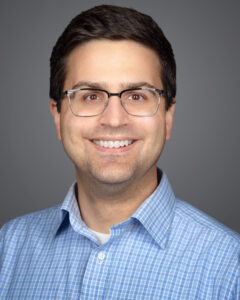
Paul Stewart (Ph.D. 2014, Academia)
Dr. Paul Stewart was a Ph.D. student at FSU from 2009 to 2014 in the lab of Dr. Qing-Xiang Amy Sang. His dissertation research focused on proteomic and bioinformatic approaches for characterizing castration-resistant prostate cancer. After leaving FSU in 2014, Dr. Stewart joined the Moffitt Cancer Center in Tampa, Florida as a postdoctoral fellow in the lab of Eric Haura, MD. In 2017, he was promoted to staff scientist in Dr. Haura’s lab; and in 2021, he joined Moffitt’s Department of Biostatistics and Bioinformatics as a tenure track faculty. His independent research incorporates data science and development of novel computational tools for processing, analyzing, and interpreting mass spectrometry and multi-omics data.
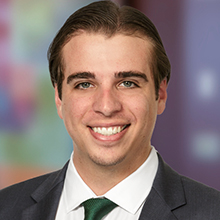 Joseph Bowler (Ph.D. 2014, Patent Law)
Joseph Bowler (Ph.D. 2014, Patent Law)
Dr. Joseph Bowler was a graduate student at FSU from 2009-2014 with Prof. Brian Miller, where he investigated the mechanism of small-molecule activation of an enzyme implicated in the pathogenesis of diabetes. He also developed an in vivo screening method that integrated a plasmid-based library with a genetic selection system to identify novel therapeutic compounds. Joseph’s doctoral work resulted in several publications in research journals, including Nature Chemistry and Proceedings of the National Academy of Sciences. Dr. Bowler now serves as a patent agent for Wolf-Greenfield Law Firm in Boston, MA where he assists in patent prosecution in the biotechnology space, primarily in the areas of next-generation sequencing, antisense therapy, and recombination protein technologies.
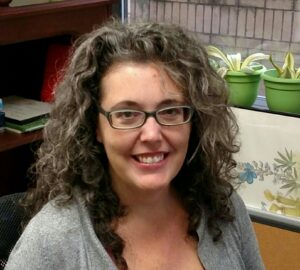
Anna Lomasney (Ph.D. 2013, Government)
Dr. Anna Lomasney obtained her BS in Chemistry and Master of Education from the University of West Florida. She spent 6 years teaching high school chemistry before joining the Department of Chemistry & Biochemistry at FSU in the fall of 2007. Anna joined the Roper laboratory in January 2008 and worked on a number of different projects including developing microfluidic systems for measuring hormone secretion from islets of Langerhans, the endocrine portion of the pancreas, and examining glycosylation events in these tissues. In 2013, she graduated with her Ph.D. and joined the Florida Department of Environmental Protection. Since 2016, she has held the position of Field Operations Environmental Administrator for the Office of Air Monitoring with the Division of Air Resource Management. Her group operates 36 air monitoring stations around the state, and are the lead quality assurance organization for a network of other local air monitoring programs comprising 90 air stations in total and covering about 90% of Florida’s population. When you get an alert from your local weather station about poor air quality, that is from the data collected by Dr. Lomasney’s group!

Corey Thompson (Ph.D. 2012, Academia)
Dr. Corey Thompson, Assistant Professor of Chemistry at Purdue University, earned a Ph.D. in chemistry from FSU. He carried out his research under supervision of Prof. Michael Shatruk from 2007-2012, during which time he produced 13 research papers, won Ford Dissertation Fellowship and multiple research awards from Oak Ridge National Lab and FSU. After a 3-year postdoctoral stint at McMaster University, Dr. Thompson joined the Chemistry Department at Purdue in 2015. His current research interests focus on energy-related problems in solid-state chemistry via investigation of novel magnetocaloric, multiferroic, and thermoelectric materials. More information about Dr. Thompson’s research can be found on his website.
Kirill Kovnir (Postdoc 2011, Academia)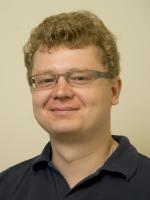
Dr. Kirill Kovnir carried out a postdoctoral stint in the group of Prof. Michael Shatruk in 2008-11. Having produced and co-authored 20 research publications in the Shatruk group, Dr. Kovnir successfully landed a tenure-track faculty position at UC Davis in 2011. His work as a Professor at UC Davis was very successful, having published many high-impact papers on thermoelectric and magnetic materials. In 2017 he moved to Iowa State where his group is focused on synthesis of novel thermoelectric, superconducting, magnetic, catalytic, and low-dimensional materials. His research is supported by the U.S. Department of Energy, the Petroleum Research Fund, and the National Science Foundation. You can read more about Dr. Kovnir’s work on his groups website.
